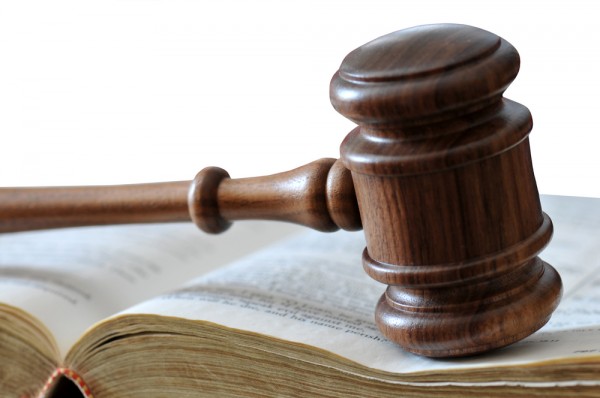
Samsung seeks to block iPhone 4S sales in France, Italy
Samsung is using Apple's release of the iPhone 4S on Tuesday as a way to gain increased leverage in the heated patent battle underway between the two companies. On Wednesday, it filed requests for an injunction banning the sale of the device in both France and Italy.
The choice of these two countries is not by accident: patent laws in both allow for an affected company to request injunctive relief before an infringing product is officially released. That said, it's not unreasonable to believe that Samsung may look for injunctions elsewhere once the iPhone 4S ships.
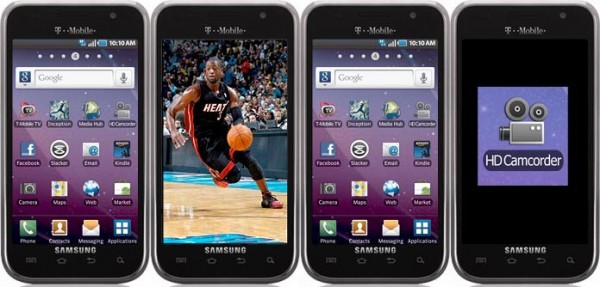
T-Mobile joins Verizon to block Apple injunction against Samsung
With Apple's battle against Samsung heating up, T-Mobile is doing its best not to get burned. If Apple is successful in getting a preliminary injunction against Samsung, the nation's fourth biggest carrier could find itself in a bad spot. Verizon has iPhone to fall back on. T-Mobile mostly offers Android smartphones, and Samsung makes the flagship models.
On Wednesday, T-Mobile filed a legal brief with the United District Court for the Northern District of California asking a federal judge to reject Apple's request for preliminary injunction against four Samsung devices: Droid Charge, Galaxy S 4G, Infuse 4G and Galaxy Tab 10.1. A hearing is scheduled for October 13. If granted, Samsung would be barred from offering these Android devices in the United States.

What if iPhone 5 isn't LTE?
Stated differently: what does Verizon know that you don't?
I've been asking both questions after reviewing Verizon's legal filing supporting Samsung in its patent dispute with Apple. America's largest wireless carrier has asked a California judge to reject Apple's request to grant preliminary injunction against four Samsung 4G devices: Droid Charge, Galaxy S 4G, Infuse 4G and Galaxy Tab 10.1. Verizon's major argument, but not the only one, is that the injunction will hurt adoption of its next-generation 4G LTE network. Samsung's Droid Charge, which would be barred from US sales if the injunction is granted, is one of four LTE handsets that Verizon carries. Surely this close to launch Verizon knows whether or not iPhone 5 will support LTE. If iPhone is so important to Verizon, if iPhone 5 sales are expected to be huge (so say financial analysts) and if iPhone 5 could more than fill the void left by Droid Charge, why take a stance against Apple?
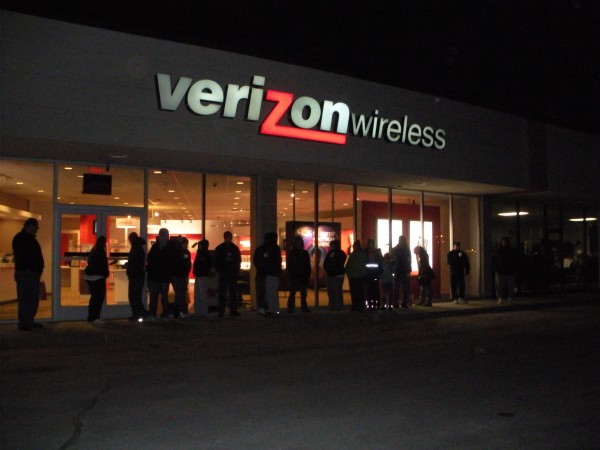
Verizon stands against Apple in Samsung patent dispute
You'd think that Verizon would show more gratitude. Everyone knows how important iPhone is to America's largest cellular carrier. We know because the rabble of pro-Apple bloggers and journalists (and, whoa, there are so many) told us so. Over and over and over again. But, no, Verizon isn't showing gratitude or loyalty to Apple at all. Last week, the carrier filed a legal brief with the United District Court for the Northern District of California asking a federal judge to reject Apple's request for preliminary injunction against four Samsung devices. A hearing is scheduled for the afternoon of October 13.
The filing is really unsurprising when looked at rationally. Verizon has much more invested in Android than iPhone. The devices in question use Verizon's 4G LTE network. Holiday sales are another consideration. The latter two points are among the cornerstones of Verizon's arguments for why the judge should reject Apple's request for preliminary injunction. Then there is that pesky loyalty thing. iPhone 5's launch is imminent, and Verizon will be one of the major beneficiaries. So why risk the Apple relationship? If the judge doesn't wonder, perhaps you should.

Apple patent lawsuits are hypocritical
I've been fairly critical of Apple's recent patent bullying -- what I call innovation through intimidation/litigation. The Apple Fanclub of bloggers and journalists defend the company's patent and other intellectual property claims as protecting its innovations from copying, particularly by Samsung. But who's copying whom?
As several Betanews commenters recently point out, Apple cofounder, current Chairman and former CEO Steve Jobs admits to the company copying from others. From a mid 1990s interview: "Picasso had a saying, he said: 'Good artists copy, great artists steal'. We have, you know, always, ah, been shameless about stealing great ideas".
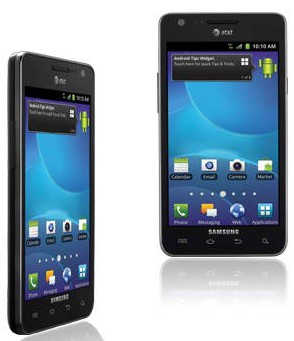
AT&T Samsung Galaxy S II arrives October 2
Finally, the news you've been waiting for from AT&T -- and it's not iPhone 5. The Samsung Galaxy S II goes on sale October 2 for $199.99 with 2-year contract and minimum $15/month data plan. No commitment price: $549.99.
That works out to a two-week delay for all the folks (me among them) who were ready to buy, or tried to, just three days ago. Sprint started selling its version, the Epic 4G, on September 16. The question now: With rumors of iPhone 5 launch just two days later (October 4) and next Google Nexus smartphone running Ice Cream Sandwich coming as soon as late next month, do you buy the S2 now or wait? One option is to hold AT&T to that 30-day return policy by buying a week from Sunday and deciding later (it's closest to having your cake and eating it, too).
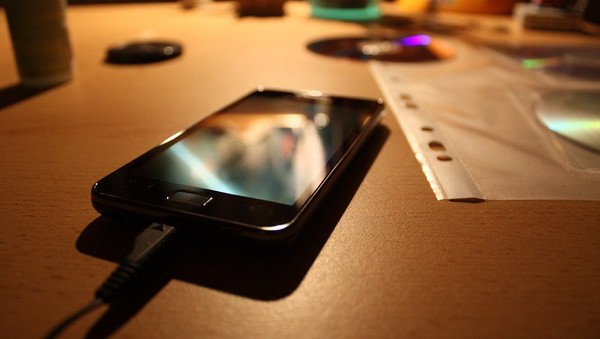
iPhone 5 has a big problem
Apple has been doing a good job covering it up.
As I've so often asserted: In business, perception is everything. Successful companies often create positive perceptions about their brands, products and business practices. But there also is the tactic of misdirection, of controlling perceptions by getting people to look somewhere else so that they miss flaws with the company's products or business strategies. Apple uses "magical" to describe some of its products. Magicians are all about getting people to look over there so they don't see the secret behind the trick over here. Apple's patent assault on Samsung, and even HTC, is very much misdirection, so that eyes turned away from iPhone 5 problems.

German ban on Samsung Galaxy Tab 10.1 sticks
Two weeks ago, German courts awarded Apple with a preliminary injunction on Samsung's Galaxy Tab 10.1, saying the tablet looked too much like the Community Design for handheld computers Apple registered with the European Union (shown above, Design Number 000181607-0001). Friday, that preliminary injunction was upheld in Düsseldorf regional court by Judge Johanna Brueckner-Hofmann.
The ban does not even consider the software or technology behind the two devices, and really only pertains to the design of the chassis, which Brueckner-Hofmann reportedly described as "minimalist" and "modern."
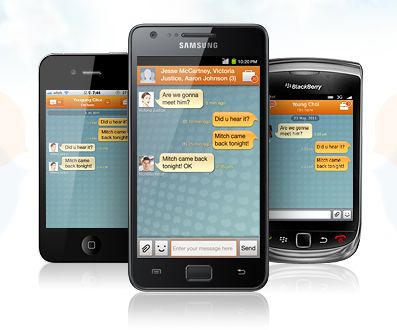
Samsung to challenge Apple's iMessage with new ChatON service
Samsung is expected to launch a new cross-platform mobile chat service called ChatON* this week at the IFA Conference in Berlin. Like Apple's new iMessage, ChatON will be very similar to RIM's BlackBerry Messenger, letting users set up individual or group chats that support multimedia messaging, as well as location, calendar and contact sharing.
The service will also include some unique features, such as Animated Message Service (AMS), short animations which can be sent like e-cards; and Interaction Ranking, a metric that shows how often you interact with certain contacts.

German court: You can have iPad but not Galaxy Tab
A German court ruled on Thursday that the earlier issued injunction barring the sales of the Samsung Galaxy Tab 10.1-inch tablet in Germany will be allowed to stand. The ruling remains in effect until at least September 9, when the court plans to issue a final verdict.
The ruling means that Samsung will be barred from showing off the device at IFA 2011, Europe's biggest consumer electronics show slated to take place next week in Berlin.
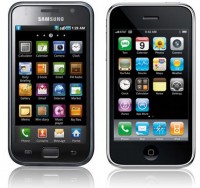
Apple does it again? Doctors Samsung images in court filing?
Apple may have just found itself in hot water again after a dutch technology news site spotted doctored images within a filing in Netherlands court surrounding Samsung's Galaxy S smartphones. The Cupertino company is accusing Samsung of copying the iPhone's design in its line of smartphones, and is seeking an injunction.
Webwereld.nl found that Apple had allegedly doctored the image of a Galaxy S smartphone by compressing it to make it the same height as the iPhone 3G, which Apple claims Samsung lifted the Galaxy S design from. By doing so, it also made the phone wider, which would further exaggerate the similarities.
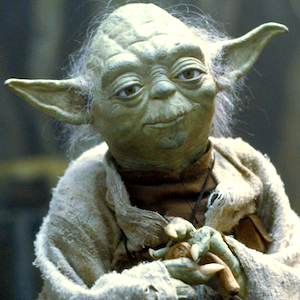
Can Google-Motorola Mobility bring stability to the Force?
"We will be looking with interest as further details of the proposed transaction become clear. But, at first glance, to the extent that this deal might bring some stability to the ongoing smartphone patent disputes, that would be a welcome development" -- John Thorne, Verizon deputy general counsel, speaking about Google's $12.5 billion Motorola Mobility acquisition.
The statement, as reported today by the Wall Street Journal, is refreshing for perspective -- that sanity might return after an increasing number of mobile patent lawsuits, among which Apple is point of axis (mostly as protagonist, but also defendant). Armed with a large stash of newly acquired Moto Mobility patents -- more than 24,000, and, of course, not all about mobile devices -- Google's position to defend Android licensees is stronger. Hell, Motorola invented the cell phone. Surely there is something Google can use as a club to beat back Apple lawyers.

HTC says everything Apple makes infringes on three of its patents
Tuesday evening, Taiwanese smartphone maker and long-time Android supporter HTC announced it filed a patent infringement lawsuit against Apple in the U.S. District Court of Delaware and also a complaint with the United States International Trade Commission (ITC).
HTC alleges infringement of three patents by Apple's Mac, iPhone, iPad, and iPod product lines in the areas of Wi-Fi profiling, and PDA/Cellular functionality in a handheld device.
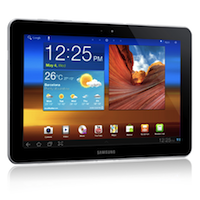
Apple lied to get that injunction against Samsung Galaxy Tab 10.1?
What? Is MG Siegler on holiday? TechCrunch's Jordan Crook has a sizzling story about Apple's bullying Samsung in German courts, not exactly the kind of stuff her Mac-loving colleague writes. I almost never re-report from another publication, but, damn, Crook makes sense out of what didn't make sense to me last week.
On August 9, a German court issued a preliminary injunction, banning sale of Galaxy Tab 10.1 in the European Union, with exception of Netherlands. Apple filed the complaint under the EU's "community design" provision enacted in 2002 and 2003, This is not a patent dispute, per se, but one of look and feel -- does one product essentially immitate, or copy, another. That baffled me for two reasons: The tablet form factor has been around for more than a decade and Tab 10.1 is longer and narrower in portrait mode than iPad. They're not the same shape. As soon as you pick up iPad 2 and Tab 10.1 you feel the difference, and I wondered how much that matters with "community design".

German courts will hear Samsung appeal on Galaxy Tab ban
Just days after a German court issued an injunction that halted sales of Samsung's 10.1-inch Galaxy Tab tablet across the European Union, the Korean electronics manufacturer won the right to appeal. The company will appear in court on August 25 in Dusseldorf to argue its case.
Apple was successful August 9 in getting the court to agree that Samsung's larger Galaxy Tab copies the iPad's design. The injunction is effective across the EU's 27 member-states save for the Netherlands, where Apple launched a separate case. The judge in that case says he expects to rule by Monday.
